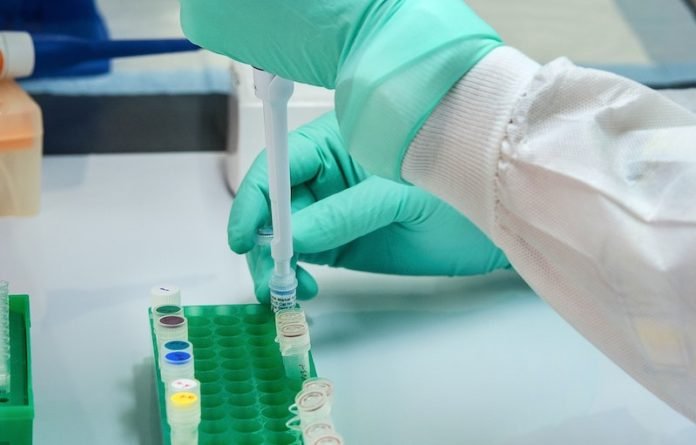
Rapid, cheap and accurate tests continue to be essential for epidemiological surveillance and for health services to monitor and contain the spread of SARS-CoV-2.
In a study from the Federal University of the ABC, scientists developed a new method that detects COVID-19 antibodies in five minutes.
In search of a novel diagnostic method, the team opted for a material frequently used in metallurgy—zinc oxide—and combined it for the first time with fluorine-doped tin oxide (FTO) glass, a conductive material used in electrodes for photovoltaics and other advanced applications.
The electrode fabricated by the researchers detected COVID-19 antibodies in serum in about five minutes with 88.7% sensitivity and 100% specificity, outperforming even the enzyme-linked immunosorbent assay (ELISA) test, the current gold-standard clinical diagnostic tool.
Zinc oxide is increasingly used to fabricate biosensors because of its versatility and unique chemical, optical and electrical properties.
The team says the immunosensor is easy to make and use, and its production cost is relatively low.
The researchers will now adapt the platform to make it portable and connectable to mobile devices for use in diagnosing COVID-19 and other infectious diseases.
In the study, a total of 107 blood serum samples were analyzed.
They were divided into four groups: pre-pandemic (15), COVID-19 convalescents (47), vaccinated without previous positive results for the disease (25), and vaccinated after a positive result (20).
The vaccine was two doses of CoronaVac administered four weeks apart. CoronaVac is produced by the Chinese company SinoVac in partnership with Butantan Institute (São Paulo state).
The authors note that the device detects antibodies produced in response to both infections by the virus and vaccination, and shows excellent potential as a tool for monitoring of seroconversion and seroprevalence.
Detecting the response to vaccination is important to help public health authorities assess the effectiveness of different vaccines and of immunization campaigns or programs.
The device has been validated for detecting immunity induced by CoronaVac, but the group plan to extend its use to testing for the response to Pfizer’s and AstraZeneca’s vaccines.
If you care about the pandemic, please read studies about new evidence on rare blood clots after COVID-19 vaccination, and new therapy from bananas may help treat COVID-19.
For more information about COVID, please see recent studies about four easy ways to reduce your risk of severe COVID-19, and results showing Omega-3 fatty acids may help reduce severe COVID-19.
The study was conducted by Wendel Alves et al and published in ACS Biomaterials Science and Engineering.
Copyright © 2022 Knowridge Science Report. All rights reserved.



